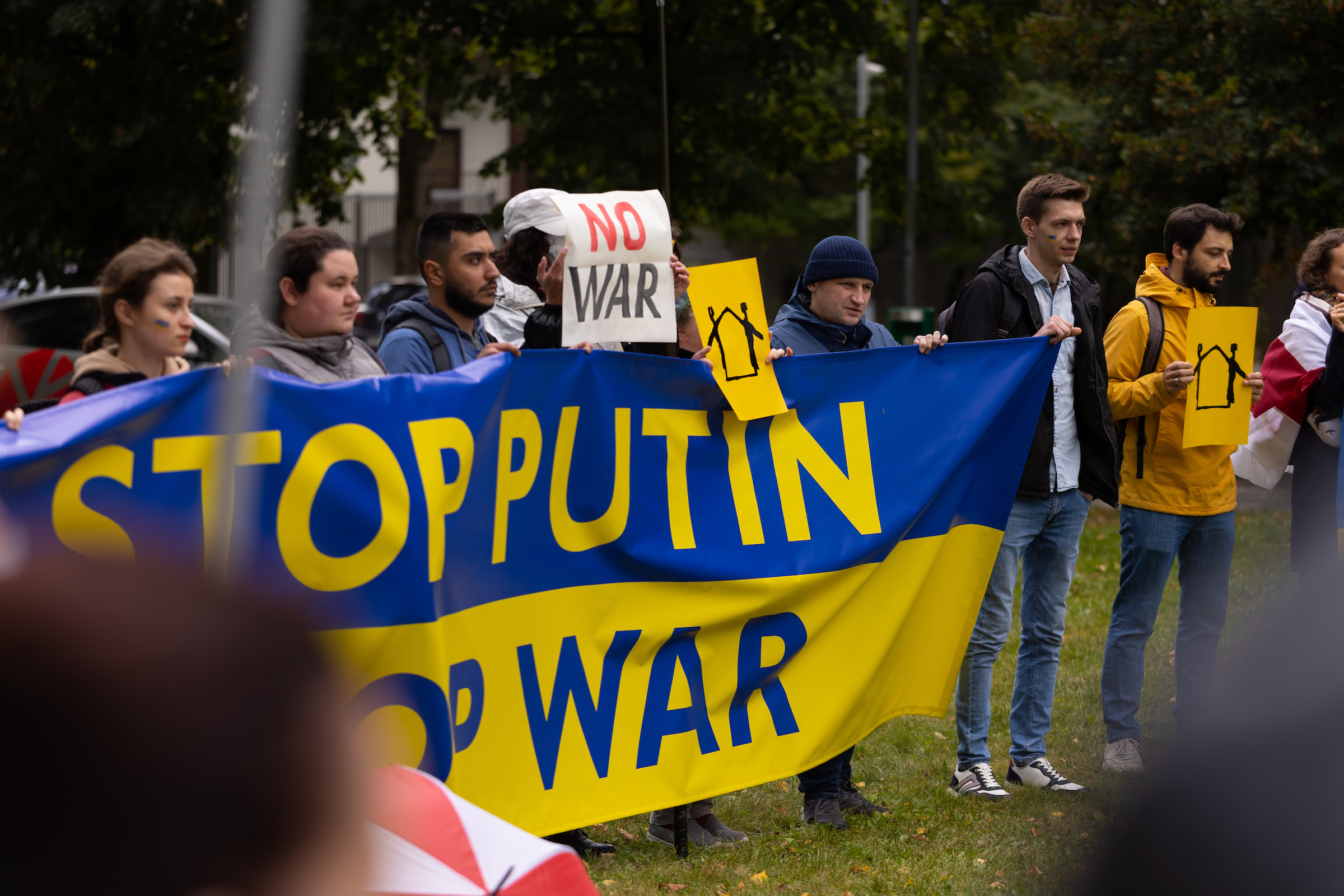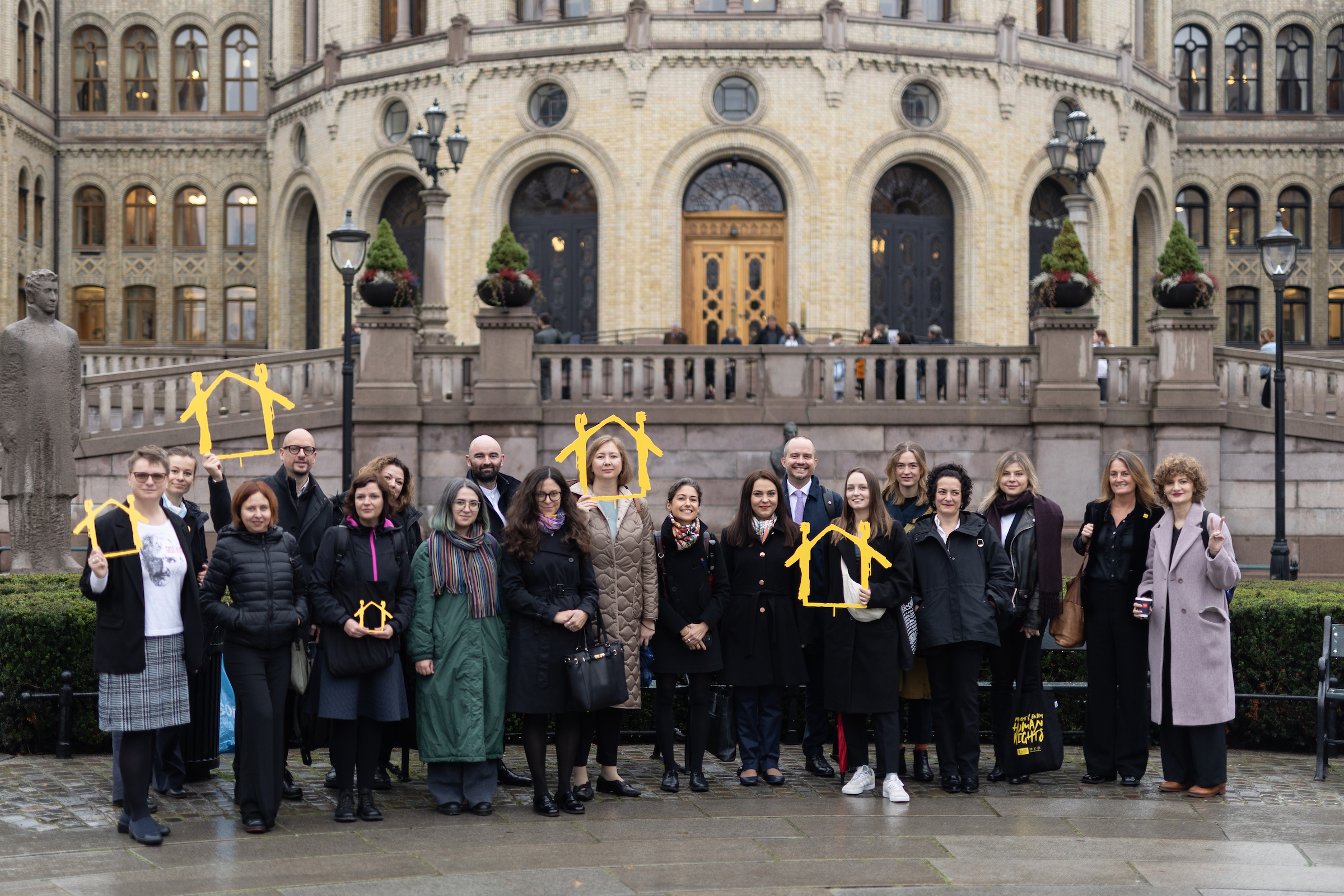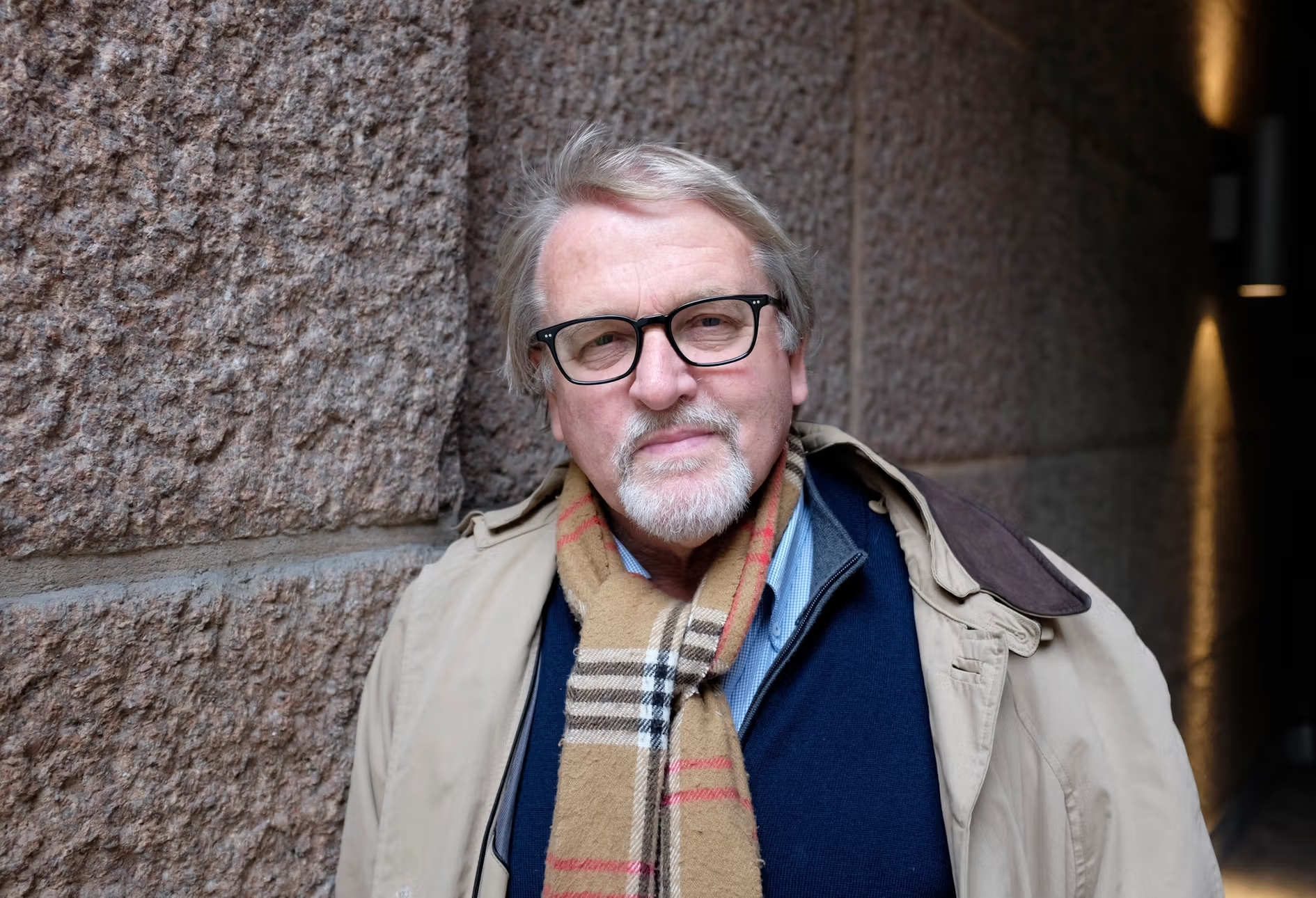This op-ed was originally published by the Norwegian publication VG on 5 February 2025 and can be read in Norwegian here.
Today human rights defenders face a paradox: Never before has the world been darker in the history of modern human rights activism after 1945.
That is why our work has never been more important. For the individual activists in the field. For society. For the international legal order. For the long-term struggle to create political civilisation.

Vladimir Putin has – based on neo-Slavic nostalgic dreams of Russian imperial restoration – attacked neighbouring Ukraine, killed tens of thousands of soldiers and innocent civilians and bombed hospitals, schools, infrastructure and people’s homes.
Russia revealed its most sinister and barbaric side in this war.
The total disregard for human life that the Russian Civil War from 1918 to 1921 heralded has reared its head again.
In the Middle East, civilians continue to suffer. The cost of human life totals 47,000 Palestinians so far, of whom 15,000 are children, and 1,200 Israelis. 1.9 million civilians in Gaza have been displaced, and 70–90 per cent of buildings are reduced to rubble.
Israel, which was intended to be a home for the victims of history’s worst mass crime to date, the Holocaust, is accused before the UN courts of preparing for genocide, and the country’s prime minister, along with the leader of Hamas, is indicted as criminal by the UN’s International Court of Justice (ICJ).
How did we end up here?
Donald Trump was re-elected as President of the United States on 5 November. We fear now what will happen. We have already observed some troubling signs.
Put simply, we are aware that he does not recognise or is ignorant of human rights conventions and their associated obligations.
This presents the international network of human rights activists with new challenges.
Now Trump has entered the White House with an administration that is prepared. Not a bunch of amateurs like in 2016. He has developed a programme. He has announced that he wants revenge, the most primitive of all emotions.
Trump has said he will fire public servants. He has already begun – the idea is to remove what he calls the “deep state”. It is classic conspiracy thinking that evades any evidence.
He will continue to fill the judiciary with his own people, and we can only guess how many loyal to him he has filled the armed forces with. And will continue to do so.
Trump has pardoned the worst perpetrators of the rioters that stormed Congress on 6 January 2021. And he wants to remove prosecutors who have brought charges for his fraud and his incitement to violence – prosecutor Jack Smith resigned before he could do so.
The United States has a convicted thug as president. Under the guise of the presidency, he will continue to use the judicial system as a tool for his own vengeance.
How did we end up here? Who would have thought it?
This means that the world will see a more aggressive, ignorant American president, more dangerous now than in 2016. A president with an understanding of truth that would make George Orwell laugh out loud.
Orwell believed that Big Brother in the novel “1984” probably knew that there was an objective truth. That 2 + 2 = 4. It was just a matter of suppressing it, and then manipulating Winston, the main character in the novel, so that he accepted that the Party was right: 2+2 = 5.
The ever-changing, “alternative” truth in the service of the Party – who would have thought that this mindless nonsense would occupy the Oval Office?
With vaccine sceptic Robert F. Kennedy Jr. as Secretary of Health, the Middle Ages will return to America.
By electing Donald Trump as the next president of the United States, the country has abandoned its position as a defender of human rights globally.
Human rights have become subordinate to American geopolitical interests and security policy. The United States is no longer a world leader in human rights. The United States is becoming the world bully, just ask Canada, Greenland, and Panama.
What happens when the US withdraws in this way? There is no longer any doubt: the EU will now become the most important institution in the world for the defence of human rights.
Norway, with its resources and historical traditions as a humanitarian power, must become a significant player in this civilising, European cooperation.
More than 30 years ago, Human Rights House Oslo was established, at the initiative of idealistic economists Knut Utstein Kloster, Jr. and Svein Wilhelmsen. They simply asked: What can we do to improve our world?
It was a different time. The Berlin Wall had fallen, the Soviet Union was crumbling, and a fledgling optimism spread across the world. The UN seemed to be fulfilling its original purpose; the human rights conventions looked to become the world’s normative markers, amidst all of the power politics.
The optimism was not to last long: the genocide in Rwanda came violently and unexpectedly. In a few months, between 800,000 and one million Tutsis and moderate Hutus were slaughtered. Then came the wars in the Balkans and we saw the beginning of Islamist terror.
What was the most important thing we could do, the founders of the first Human Rights House asked. Yes, we need to protect the people who defend human rights out there in the field. Those who risk their lives every day to stand up for fundamental rights and freedoms.
We want to give them a house, a roof for their work so that they are as free as possible in practical matters and can concentrate as much as possible on their work.
This is how the Norwegian organisation Human Rights House Foundation was established. Today, more than 80 different organisations working on everything from freedom of expression, democracy, defence of torture victims and protection of sexual minorities are members of the Network.

Local civil society established their own Human Rights Houses in a number of countries. The Norwegian Ministry of Foreign Affairs and several other countries’ foreign ministries support us, as do many private individuals. Knut Kloster Jr. and Svein Wilhelmsen were the first.
And it is needed: International human rights defenders are confronted with a resurgence of authoritarian movements all over the world, from China to Russia, from India to Germany.
Even in Norway’s neighbours in Europe, autocracies have mobilised for many years to abolish the rule of law, the protection of minorities, and the free press.
We must ask: When will we inaugurate a Human Rights House within earshot of the White House? In Jerusalem?
The goal of Trump, Xi and Putin is easy to see: to establish a new world order that stands in stark contrast to the 1948 UN Universal Declaration of Human Rights and the subsequent international system for the protection of human rights.
Nationalism, fear of immigrants, economic hardship, contempt for science, rational arguments, and democratic freedoms – all are merging into a new form of aggressive populism reminiscent of the worst ideologies of the 20th century.
The paradox for us is that because of the attacks on human rights in the world, our work is more important than ever.
Norway has an important role: it has been a solid and credible supporter of many human rights communities for a number of years. This support must continue and be stepped up.
We will never give up our moral and material support for those people who stand on the front lines of barbarism. We will continue to suffer disappointments, but the idea of a rules-based world order with respect for pluralism and the dignity of the individual will never waver.
It’s not easy to find bright spots in the world.
But after the US presidential election, we can clearly state: Now it is the EU and Europe that must be in the driving seat for the protection of human rights.
And Norway must take a clear role in this work.
From Brussels. From Oslo.
About the author
Bernt Hagtvet is a Norwegian political scientist, writer, and social commentator. He is the chairperson of the Board of Human Rights House Foundation and professor of political science at UiO and Oslo Nye Høyskole.
Hagtvet is a specialist in European politics, extreme political movements, genocide, democracy and human rights. He has been described as “Norway’s foremost expert in totalitarian regimes and ideologies in the 20th century”.
Hagtvet was among the founders of the Human Rights House Foundation and stayed on as a board member. Today he serves as the chairperson of the board.





